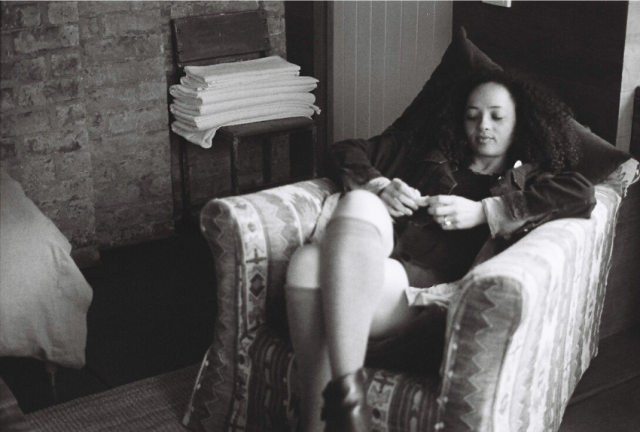Accessibility Tools
- Content scaling 100%
- Font size 100%
- Line height 100%
- Letter spacing 100%
The SANE Blog

Fight/Flight/Freeze: How I'm living through COVID-19 as a trauma survivor
I know I am not alone in saying that the COVID-19 situation has triggered pervasive feelings of powerlessness, entrapment and uncertainty. I also know that I am not alone when I say that, as someone with a history of trauma, these feelings are very familiar and extremely difficult to tolerate.
In working through my trauma, I have learned that when we’re confronted with situations that remind us of our trauma, or where there is any sense that we are in danger, our fight or flight system kicks in. For me, this manifests as extremely high anxiety levels, excessive nervous energy, and frantic efforts to gain control.
When COVID-19 started to impact on my life, when I felt that the wellbeing of my loved ones was in danger and I started to lose control of the things that gave my life meaning and stability (my work, my social life, my home), I quickly spiralled into a panic.
For days I couldn’t breathe, I couldn’t sleep, my mind was constantly racing, and my body was constantly shaking. I came across messages to control what I could control, which was good advice in theory, but paralleled an internal fallacy that I have battled for years – when I can’t control anything else, I can control my body. So, I fell back into old patterns of disordered eating, compulsive exercise and self-harm, in a desperate attempt to regulate that intolerable anxiety. Until I crashed.
When the fight or flight response is active for long enough and the threat is still ongoing, we fall into the freeze response. For me, this characterised the next stage of my COVID-19 response. I fell into a deep depression, consumed with feelings of hopelessness and thoughts of suicide. I swung between feeling numb and feeling devastated, apathetic and inconsolable. I struggled to engage with the few opportunities for socialising that I had. And sometimes I – an extrovert who was starving for social contact – did not want to engage at all. I spent most of my days in bed, avoiding talking to my friends, turning to food and alcohol for comfort.
I have cycled through these responses countless times throughout my life. Essentially, any time I have felt overwhelmed, threatened, or unable to control my situation, first comes the fight/flight, then comes the freeze. It is exhausting, and always accompanied by frustration and disappointment in myself for repeatedly falling into the same coping responses that I have been trying to put behind me for years.
I have also learned that I can get out of these states through grounded movement, through socialising, through connecting with meaningful work.
In the current situation, this added an additional layer of frustration and disappointment because I couldn’t engage with those in the way that I was used to. I couldn’t go to dance classes, I wasn’t allowed to see my friends, and my work was suspended.
Like everyone in this crisis, I have had to accept those restrictions and think creatively about how to work within them. The internet has truly been a gift in allowing me to connect with dance online, to research and learn more about my passions independently, to catch up with my friends regularly. I am grateful that our friendships are growing even if we can’t be physically near each other. I am grateful that I still have the support of my therapist through telehealth. I am grateful for the opportunity to write this blog.
I still feel disheartened, frustrated and helpless, more often than not. But there have also been times when I have laughed out loud, when I have connected with friends and family in a whole new way, when I have felt inspired by new ideas, and when I have felt hopeful over the ingenuity and resilience that I have seen in others.
Reverting to old ways of responding to and coping with trauma makes sense, given the ongoing sense of threat and loss of control that we are facing right now. We developed these coping responses to survive, and they probably served that purpose before they became problematic.
To anyone who is triggered by COVID-19, I hope that you can forgive yourself for how you’re coping, find ways out of your fight/flight/freeze, and get extra support if you need it.
Guest blog by SANE Peer Ambassador, Ria.
If you (or someone you know) needs support - the SANE Help Centre is open from Monday - Friday, 10am - 8pm AEST. Our team of counsellors are available by phone, web chat and email, so you can comfortably communicate in the way that feels best for you.
We can provide you with counselling, support, information and referrals, and we specialise in assisting adults who identify as having a complex mental health issue, complex trauma or high levels of psychological distress.
We also provide support to the family or friends that care about these people.
Click to visit the SANE Help Centre now.
If you'd like to chat with other people who understand what you're going through, the SANE Forums are online 24/7. There's one Forum for Lived Experience, and another for family, friends or carers. The Forums are anonymous, and moderated by health professionals, to keep the conversation safe and supportive.
By accepting you will be accessing a service provided by a third-party external to https://dev.sane.org/










